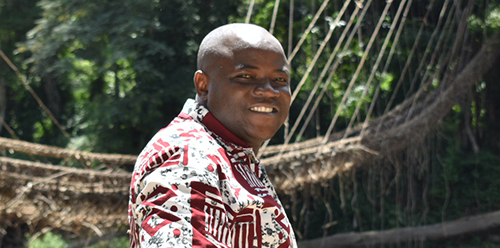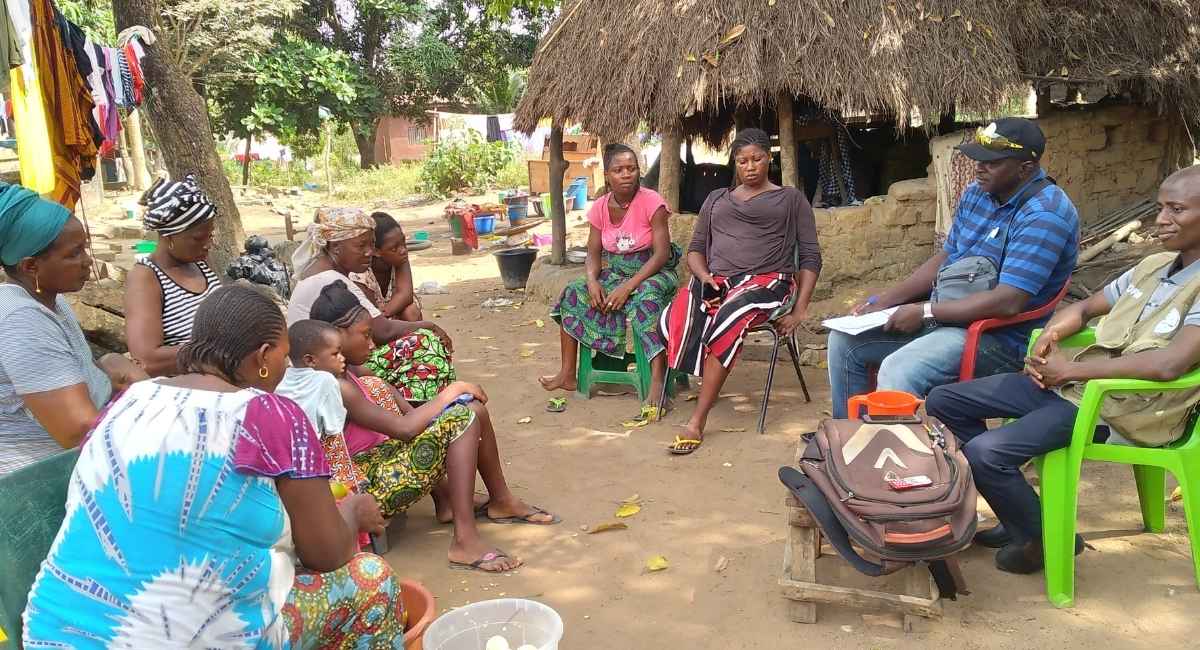Following the recent launch of several projects and given the significant challenges in terms of agroecology and health identified in Guinea, GRET re-opened* a new permanent representation in the country in February 2021. Jean 14 Koivogui, Saveur project manager and new representative in Guinea, explains the challenges and perspectives of this long-term commitment by GRET.
What does the opening of a GRET representation in Guinea mean for you?
Since the 1990s, GRET has been working regularly in Guinea in collaboration with local authorities and civil society organisations, particularly in the area of agriculture and food. Over the years, strengthening of food and nutrition security has been a priority in our interventions tackling poverty and malnutrition that prevail in this country, despite its very strong agricultural potential. Today, three projects and several technical assistance interventions are being implemented, involving numerous local Guinean employees and focusing on various subjects.
The re-opening of a representation marks GRET’s will to become even more active in Guinea to respond to the structural problems hindering local development, in order to help the country to achieve its potential in various areas. So, the opening of this representation will facilitate collaboration with State stakeholders, donors and other technical and financial partners. This partnership will make it possible to lay the bases of complementary action to inform strategic reflections that will facilitate consideration of rural Guinean communities’ expectations.
How is the One Health approach taken by GRET pertinent to respond to challenges around health in Guinea?
Forest Guinea, where the One Health project, funded by Agence française de développement (AFD), is being conducted, has a past marked by the Ebola epidemic, which badly affected the zone from 2014 to 2016. Although the population is now aware of the epidemic risk, there is persistent defiance vis-à-vis public authorities, which is still visible today with the Covid 19 crisis. Populations’ and public authorities’ understanding of the interdependency between ecosystem, animal and human health is as yet insufficient to prevent and effectively control future epidemics, as recently illustrated by the resurgence of Ebola in this zone. To respond to this problem, the project aims to construct a methodology that is appropriate to the context in Forest Guinea in order to contribute to local populations’ resilience in three rural communes via effective, concurrent, integrated deployment of the One Health approach in a highly operational manner among households, villages and communes.
What are the prospects for development of this GRET representation in Guinea?
Firstly, the opening of a permanent representation will make it possible to consolidate the achievements of previous projects that supported the development of agricultural value chains and farmers’ and professional organisations. This will give us the means to continue reflection and innovations that will inform our approaches, to diversify our areas of intervention, and to respond to pressing problems in Guinea, in particular agriculture, access to basic services, the environment and strengthening of civil society. Favouring synergies for action between stakeholders, local authorities and civil society will make it possible to increase the impact of projects for the benefit of inhabitants and will contribute to the professionalisation of local stakeholders, facilitating the most appropriate and sustainable responses to the challenges that lie ahead for Guinea.
* A GRET representation had been opened in Guinea between 2014 and 2015






